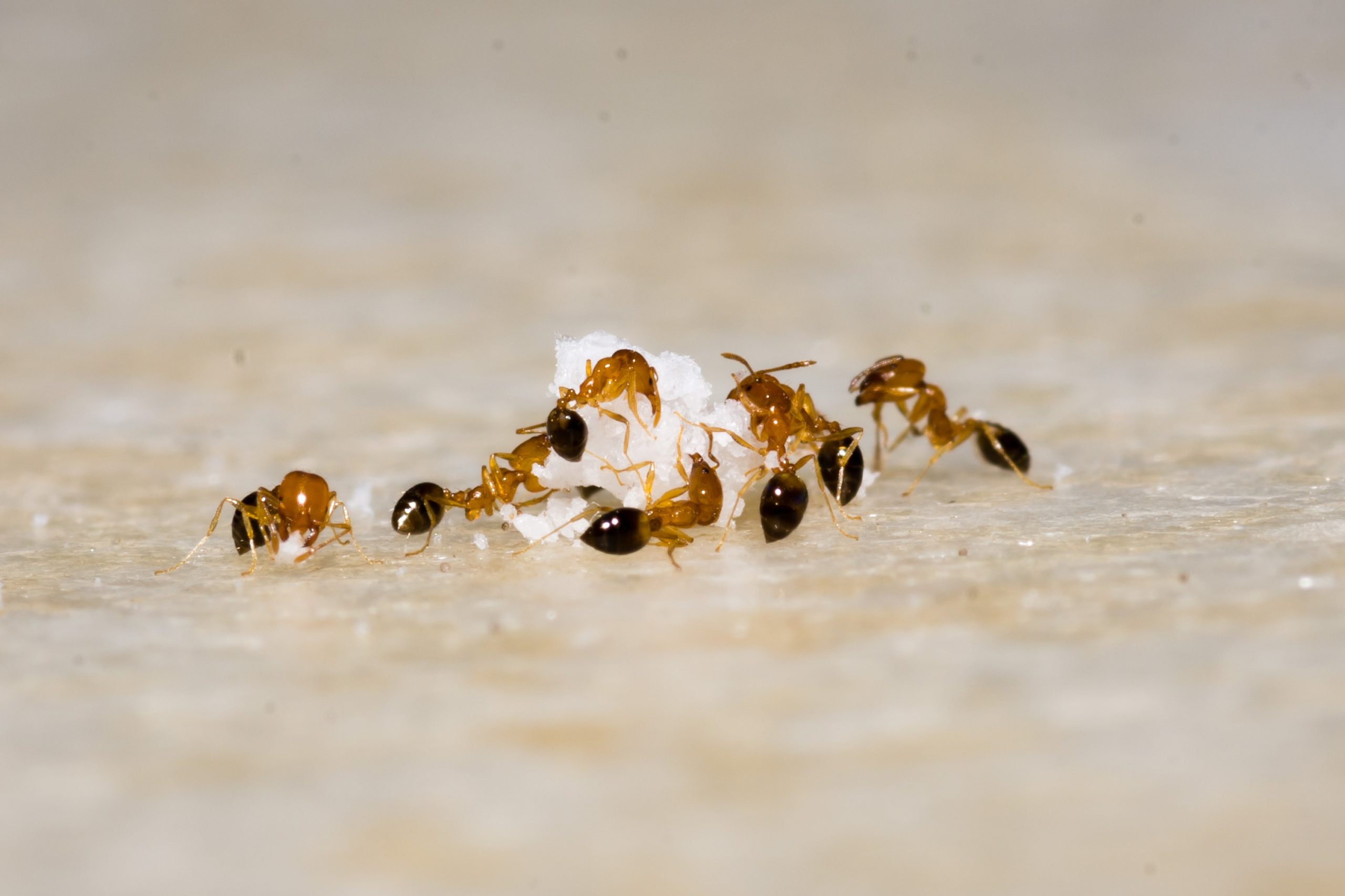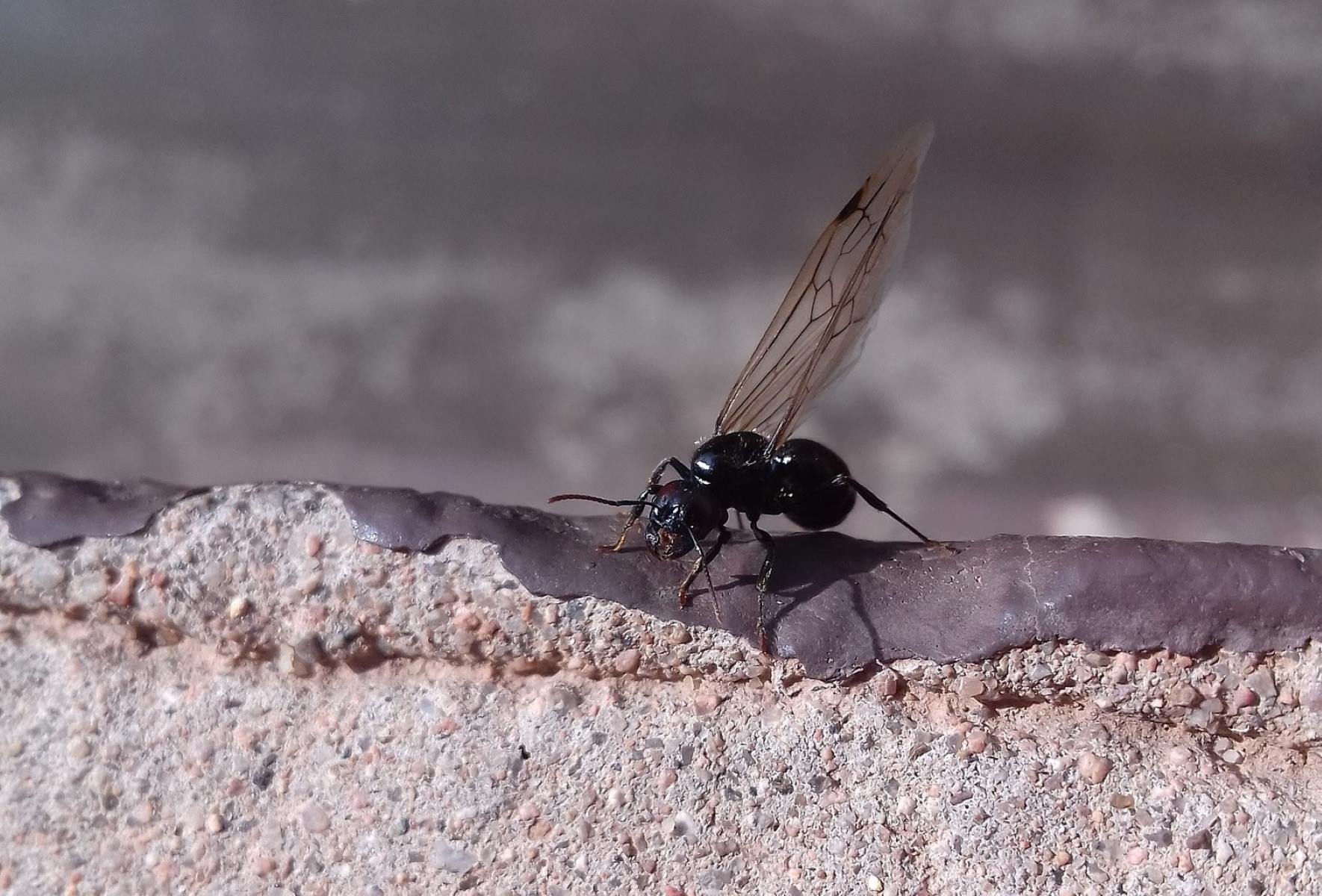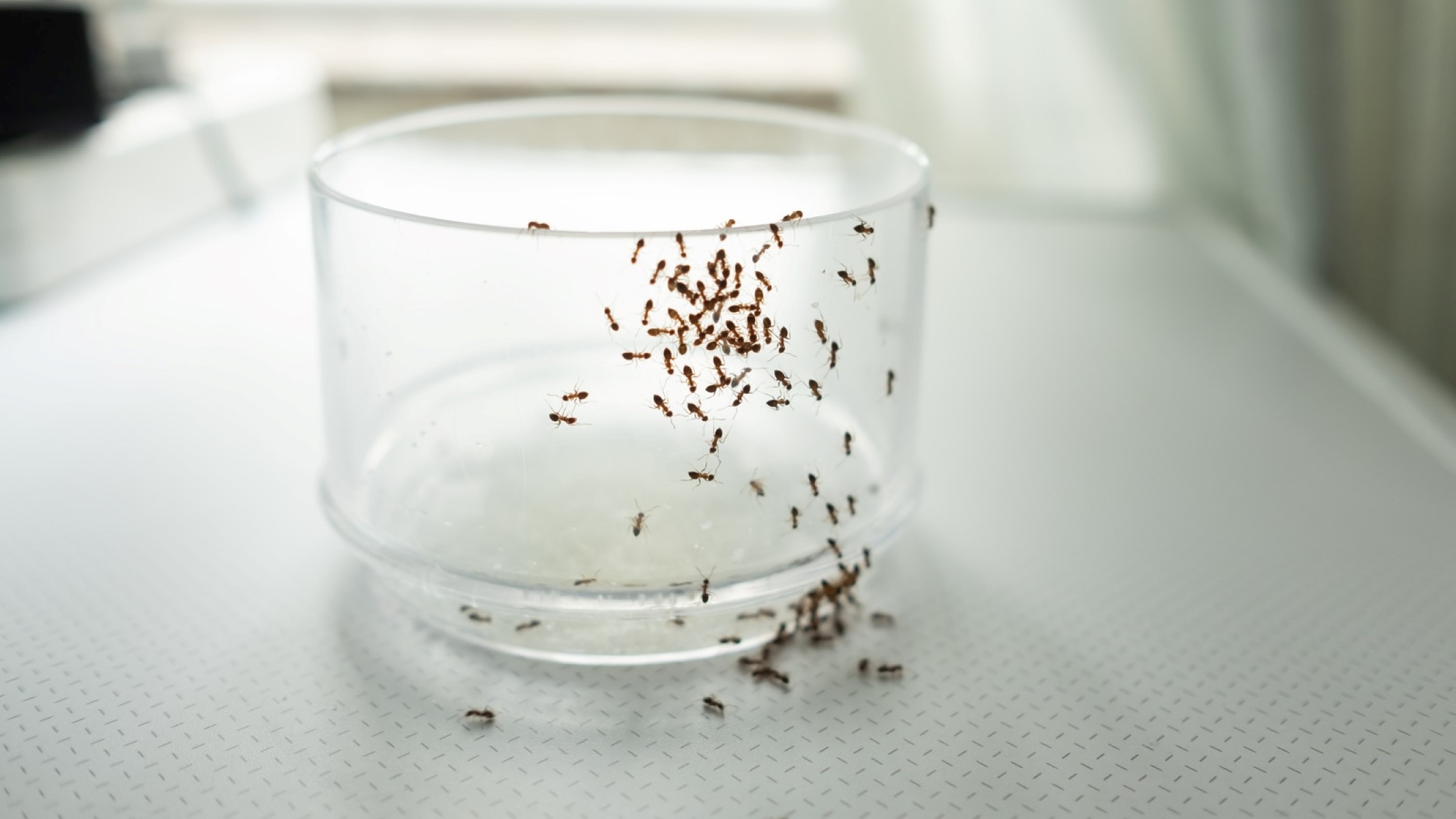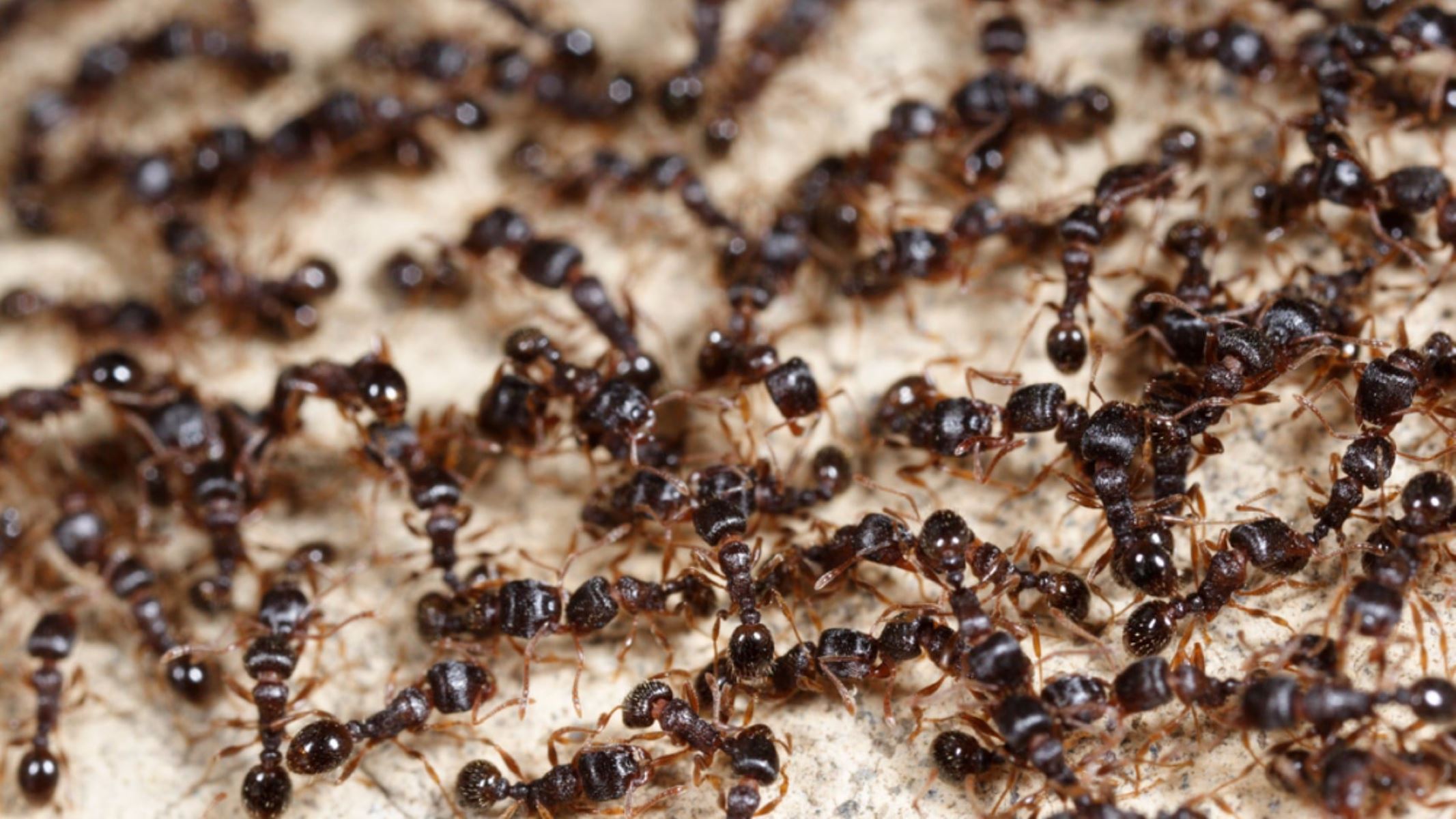Home>Home and Garden>The Surprising Way Cinnamon Repels Ants


Home and Garden
The Surprising Way Cinnamon Repels Ants
Published: January 21, 2024
Discover the surprising effectiveness of cinnamon in repelling ants from your home and garden. Learn how to use this natural solution to keep your space pest-free.
(Many of the links in this article redirect to a specific reviewed product. Your purchase of these products through affiliate links helps to generate commission for Regretless.com, at no extra cost. Learn more)
Table of Contents
Introduction
Ah, the persistent problem of ants invading our homes. It's a situation that can leave anyone feeling exasperated. From marching across kitchen countertops to infiltrating pantries, these tiny intruders seem to find their way into every nook and cranny. While there are numerous methods to repel ants, one surprising and natural solution stands out: cinnamon.
In this article, we'll delve into the remarkable ant-repelling properties of cinnamon. You'll discover how this common kitchen spice can serve as a potent deterrent for these pesky insects. From understanding the science behind cinnamon's effect on ants to learning how to effectively utilize it in your battle against these unwelcome guests, we'll explore the fascinating world of cinnamon and its role in pest control.
So, if you've ever found yourself wondering how to keep ants at bay without resorting to harsh chemicals or expensive treatments, you're in for a treat. Join us as we uncover the secrets of this humble spice and its surprising ability to repel ants.
Read more: Unbelievable! Sink Infested With Ants!
Understanding the Ant-Repelling Properties of Cinnamon
Cinnamon, a beloved spice renowned for its warm, aromatic flavor, possesses remarkable properties that extend beyond its culinary uses. This humble yet potent ingredient has been found to act as a natural deterrent for ants, offering a non-toxic and eco-friendly solution to pesky infestations.
The secret lies in the composition of cinnamon, particularly its essential oil, which contains a high concentration of cinnamaldehyde. This active compound is responsible for the spice's distinct flavor and aroma, but it also serves as a powerful repellent for ants and other insects. Cinnamaldehyde disrupts the ants' olfactory receptors, making it difficult for them to navigate and communicate effectively, ultimately deterring them from entering treated areas.
Moreover, the scent of cinnamon creates a barrier that ants find displeasing, prompting them to avoid areas where the spice is present. This natural aversion can be attributed to the strong, pungent aroma emitted by cinnamon, which overwhelms and confuses the ants' sensory perceptions, compelling them to seek alternative pathways away from the source.
In addition to its olfactory impact, cinnamon's physical properties play a role in repelling ants. When ants come into contact with cinnamon, particularly when it is sprinkled in powdered form, the spice can disrupt their delicate exoskeleton. This abrasive effect can impede the ants' movement and cause discomfort, further dissuading them from traversing treated surfaces.
Furthermore, the efficacy of cinnamon as an ant repellent is supported by its natural properties, making it a safe and sustainable alternative to chemical insecticides. By harnessing the innate repellent qualities of cinnamon, individuals can mitigate ant infestations without compromising their health or the environment.
Intriguingly, the ant-repelling properties of cinnamon have been recognized across cultures and generations, with the spice being utilized as a traditional remedy for deterring insects in various contexts. This enduring reputation underscores the enduring effectiveness of cinnamon as a natural ant repellent, making it a valuable ally in the ongoing battle against household pests.
As we delve deeper into the fascinating interplay between cinnamon and ants, it becomes evident that this unassuming spice harbors extraordinary potential as a non-toxic, aromatic shield against unwanted insect intrusions. With a deeper understanding of its ant-repelling properties, we can unlock the full potential of cinnamon as a natural and sustainable solution for managing ant infestations.
How Cinnamon Affects Ants
The remarkable impact of cinnamon on ants is rooted in the spice's multifaceted approach to deterring these persistent insects. When ants encounter cinnamon, whether in its powdered form or as an essential oil, several key mechanisms come into play, collectively contributing to its potent repellent effect.
First and foremost, the scent of cinnamon disrupts the ants' ability to communicate and navigate effectively. The powerful aroma emitted by cinnamon overwhelms the ants' olfactory receptors, causing confusion and disorientation. This sensory interference hinders the ants' capacity to follow scent trails and communicate vital information, such as the location of food sources or potential threats. Consequently, the disrupted communication and navigation impede the ants' ability to forage efficiently, compelling them to avoid areas permeated with the pungent scent of cinnamon.
In addition to its olfactory impact, the physical properties of cinnamon pose a formidable challenge to ants. When ants come into contact with cinnamon, the abrasive nature of the spice can disrupt their delicate exoskeleton. This abrasive effect not only impedes the ants' movement but also causes discomfort, further dissuading them from traversing treated surfaces. Moreover, the fine particles of powdered cinnamon can adhere to the ants' bodies, exacerbating their discomfort and deterring them from venturing into cinnamon-treated areas.
Furthermore, the active compound cinnamaldehyde, abundantly present in cinnamon essential oil, plays a pivotal role in repelling ants. This potent compound interferes with the ants' pheromone receptors, disrupting their ability to communicate effectively and coordinate collective activities. As a result, the ants' social organization and foraging behaviors are disrupted, leading to a decreased inclination to inhabit or traverse areas infused with cinnamon's aromatic defense.
Moreover, the repellent properties of cinnamon are not limited to its immediate impact on individual ants. The lingering scent and physical presence of cinnamon create a lasting barrier that deters ants from re-entering treated areas. This enduring effect serves as a formidable deterrent, discouraging ants from establishing trails or colonies in proximity to cinnamon-protected zones.
In essence, the multifaceted approach of cinnamon in affecting ants encompasses both olfactory and tactile disruption, impeding the insects' communication, navigation, and physical comfort. By harnessing these diverse mechanisms, cinnamon emerges as a formidable natural deterrent, offering a sustainable and non-toxic solution for managing ant infestations.
The intricate interplay between cinnamon and ants underscores the remarkable adaptability and resilience of this humble spice as a powerful tool in the ongoing battle against household pests. As we continue to explore the profound impact of cinnamon on ants, it becomes evident that this natural repellent embodies a harmonious fusion of science and nature, offering a compelling alternative to conventional insect control methods.
Using Cinnamon to Repel Ants
Harnessing the potent ant-repelling properties of cinnamon is a straightforward and versatile endeavor, offering a natural and effective solution for managing ant infestations. Whether in powdered form or as an essential oil, cinnamon can be strategically employed to create a protective barrier against these persistent insects.
Sprinkling Cinnamon Powder
One of the simplest methods of utilizing cinnamon is by sprinkling powdered cinnamon in areas prone to ant activity. Common entry points such as windowsills, doorways, and cracks in the walls can be effectively treated with a generous dusting of cinnamon. Additionally, areas where food is stored or prepared, such as pantries and countertops, can benefit from the application of cinnamon powder to deter ants from foraging for sustenance.
Read more: Lemongrass: The Ultimate Mosquito Repellent
Creating Cinnamon Barriers
By strategically creating cinnamon barriers along ant trails and entry points, individuals can impede the insects' access to interior spaces. This can be achieved by outlining the desired perimeter with a continuous line of powdered cinnamon, effectively creating a natural deterrent that discourages ants from crossing into protected areas. Additionally, cinnamon can be utilized to encircle specific objects or areas that require protection, serving as an aromatic shield against potential ant incursions.
Using Cinnamon Essential Oil
Harnessing the concentrated potency of cinnamon essential oil offers a versatile and targeted approach to repelling ants. By diluting cinnamon essential oil with water and transferring the solution to a spray bottle, individuals can effectively administer the repellent to desired surfaces and areas. Spraying cinnamon-infused water along ant trails, entry points, and infested areas can create an enduring barrier that deters ants while imparting a pleasant aroma to the treated spaces.
Incorporating Cinnamon in Cleaning Regimens
Integrating cinnamon into regular cleaning regimens not only enhances the aromatic ambiance of living spaces but also serves as a proactive measure against ant infestations. Adding a few drops of cinnamon essential oil to homemade cleaning solutions or using cinnamon-scented cleaning products can help fortify surfaces and areas against potential ant intrusions.
Enhancing Effectiveness with Complementary Measures
To maximize the efficacy of cinnamon as an ant repellent, it can be complemented with additional preventive measures. This includes maintaining cleanliness, promptly addressing food spills, and sealing potential entry points to minimize ant attractants and fortify the protective effect of cinnamon.
By integrating these practical strategies, individuals can leverage the remarkable ant-repelling properties of cinnamon to create an aromatic shield against unwanted insect intrusions, offering a sustainable and eco-friendly alternative to conventional insect control methods. With its versatile applications and enduring effectiveness, cinnamon emerges as a potent ally in the ongoing battle against household pests.
Conclusion
In conclusion, the remarkable ant-repelling properties of cinnamon offer a natural and sustainable solution for managing ant infestations, presenting a compelling alternative to conventional insect control methods. Through a deeper understanding of the science behind cinnamon's impact on ants, we have unveiled the multifaceted mechanisms through which this humble spice serves as a potent deterrent for these persistent insects.
The olfactory and tactile disruption caused by cinnamon creates a formidable barrier that deters ants from entering treated areas, disrupting their communication, navigation, and physical comfort. From overwhelming the ants' olfactory receptors with its pungent aroma to impeding their movement through abrasive contact, cinnamon exerts a comprehensive influence that dissuades ants from establishing trails or colonies in proximity to protected zones.
By strategically utilizing cinnamon in powdered form or as an essential oil, individuals can create aromatic shields and barriers that effectively repel ants from interior spaces, safeguarding against unwanted insect intrusions. Whether through sprinkling cinnamon powder along entry points and infested areas or by incorporating cinnamon essential oil into cleaning regimens, the versatility of cinnamon as an ant repellent empowers individuals to proactively manage ant infestations while enhancing the aromatic ambiance of their living spaces.
Furthermore, the natural and non-toxic nature of cinnamon's ant-repelling properties underscores its value as an eco-friendly and sustainable alternative to chemical insecticides, aligning with the growing emphasis on environmentally conscious pest control methods. By harnessing the innate repellent qualities of cinnamon, individuals can mitigate ant infestations without compromising their health or the environment, contributing to a harmonious coexistence with nature.
As we reflect on the enduring reputation of cinnamon as a traditional remedy for deterring insects across cultures and generations, it becomes evident that this unassuming spice harbors extraordinary potential as a natural and sustainable solution for managing ant infestations. With its enduring effectiveness, versatile applications, and eco-friendly attributes, cinnamon emerges as a potent ally in the ongoing battle against household pests, offering a fragrant and effective defense against unwanted insect intrusions.
In essence, the remarkable ant-repelling properties of cinnamon not only provide a practical and effective means of managing ant infestations but also exemplify the harmonious fusion of science and nature, offering a compelling testament to the enduring efficacy of natural remedies in addressing common challenges. Through the widespread recognition of cinnamon as a formidable ant repellent, individuals can embrace a holistic and sustainable approach to pest management, fostering a living environment that is both aromatic and free from unwelcome insect intrusions.













